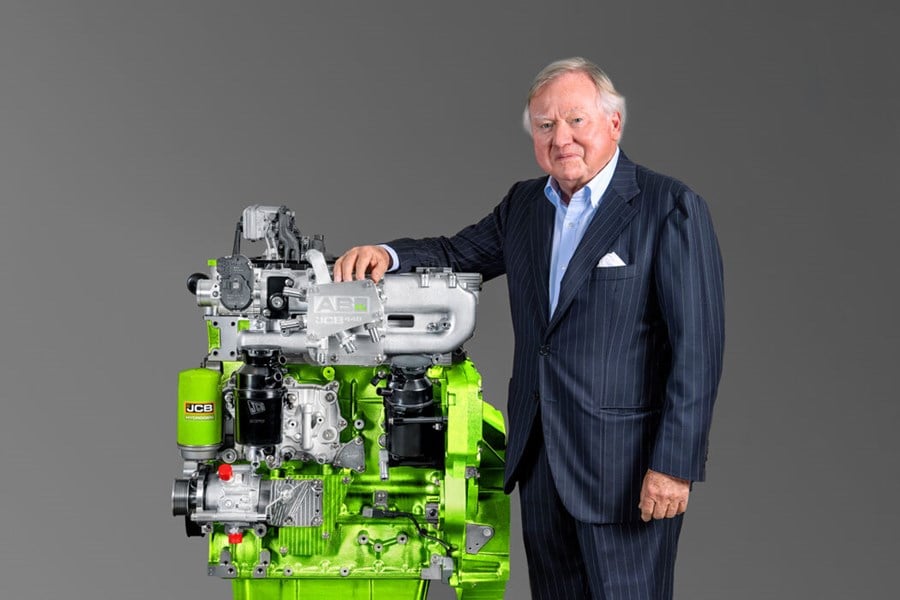JCB's Groundbreaking Hydrogen Combustion Engine Receives Certification Across Europe
Key Ideas
- JCB's hydrogen combustion engine, developed over 3 years at £100 million, receives approval from 11 European licensing authorities for commercial use.
- Hydrogen-powered vehicles gain traction with UK approving tests for diggers; BMW and Toyota collaborate on hydrogen fuel cell technologies for future vehicle series.
- JCB's hydrogen engines operate similarly to petrol engines but with the advantage of zero carbon emissions, though they produce nitrogen oxides.
- Successful trials of hydrogen refuelling by easyJet at Bristol Airport for aviation indicate progress towards carbon-emission-free flying with ongoing research.
JCB has made a significant breakthrough in green technology by developing a hydrogen combustion engine that received official certification across Europe from 11 licensing authorities. This achievement comes after three years of development and an investment of £100 million. The approval by authorities like the Netherlands' RDW and other European countries paves the way for commercial sales of JCB's hydrogen engines for construction machinery. This milestone is seen as a positive step for the future of hydrogen combustion technology, as indicated by JCB's chairman Lord Bamford. Additionally, the UK has granted permission for testing hydrogen-powered vehicles on its roads, signaling a growing interest in green solutions for transportation.
The collaboration between BMW and Toyota to advance hydrogen fuel cell technologies for future vehicle series further underlines the industry's shift towards sustainable alternatives. Unlike lithium-ion electric vehicles, hydrogen fuel cell vehicles produce only pure water as a waste product, making them environmentally friendly. However, challenges remain, such as the production and transportation of raw hydrogen being carbon-intensive, and the production of nitrogen oxides by hydrogen combustion engines. Despite these drawbacks, the potential for green hydrogen in aviation is promising, with successful trials of hydrogen refuelling by easyJet at Bristol Airport through Project Acorn. This initiative aims to collect valuable data for research that will contribute to the advancement of carbon-emission-free flying, ensuring the alignment of infrastructure, regulations, and policies with technological innovations in the industry.
Topics
Europe
Certification
Aviation
Technology
Carbon Emissions
Green Technology
Construction Equipment
Hydrogen Combustion
Vehicle Authority
Latest News
